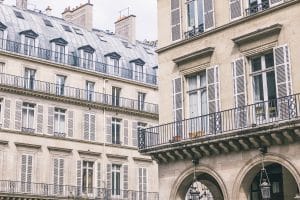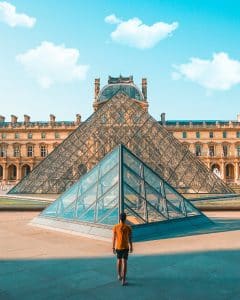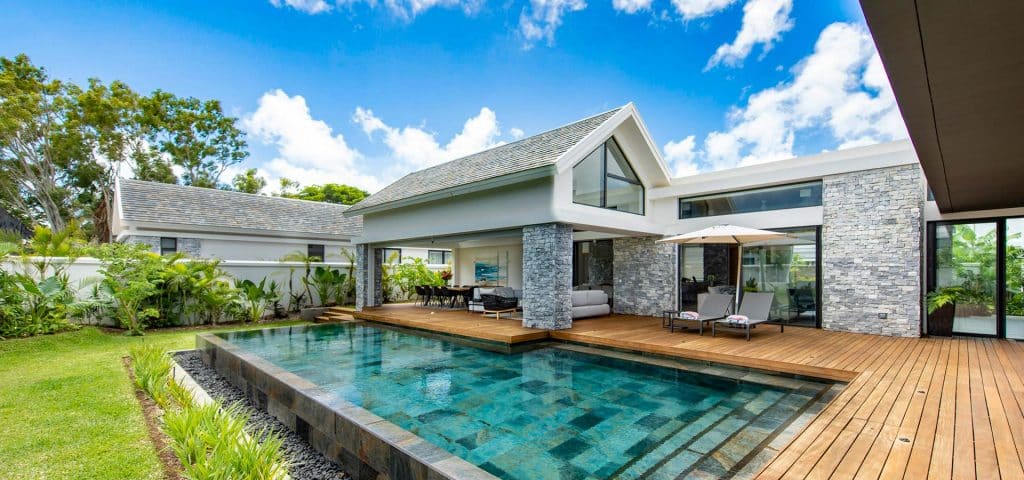Share this article
Be the first to know about our new projects.
2Futures has many new luxury projects in the pipeline. Get notified before the public when there’s a new launch. Benefit from early bird specials.
How far would you go to broaden your horizons? If you’re ‘In Between’ – as American singer Macy Gray writes in her song about whether the grass is greener on the other side – this comparison between Mauritius and France might help you see things more clearly.

The high cost of living means more people are relocating outside the city to more rural locations where houses are less expensive. Average square meterage prices of existing apartments in the capital fell by 1.1% (-6.6% inflation-adjusted) to EUR10,660 (USD11,458).
A recent study by the University of Paris and King’s College London revealed that almost half of Parisians think the city is too costly and believe they will find a better quality of life elsewhere. The
You will have no trouble letting your apartment in Paris. Still, gross rental yields are low in the more desirable locations, at around 4.2% for small apartments and 3.9% for large apartments. A 120-square-metre apartment in these areas costs around EUR970 per square metre.
Meanwhile, at the luxury developments, Infinity by the Sea and Ki Resort, in Mauritius, two-bedroom apartments just under 100 square metres generate an estimated net annual rental return of 5.1%. A similar space at The Essence generates an estimated net annual rental return of 6.6%.

In addition, individuals residing in France are subject to progressive tax rates ranging from 5.5% to 45% on their worldwide income.
Property transaction costs are moderate to high in France, ranging from 7.9% to 28.99%%. While new properties attract the highest charges because of the 20% VAT, the registration fee is lower.
Nonresidents can apply for a mortgage in France from various banks, but they must be financially stable to benefit from the potential 85% loan-to-value offer. “Each French bank has different underwriting criteria and products, so running your situation past a broker will help you to understand your options. French banks are notorious for saying yes at the beginning of the process only to perform a dramatic U-turn at the last minute, leaving would-be borrowers frustrated as the purchase deadline approaches,” according to French Private Finance.

The island’s attractive fiscal regime is one of the many advantages of living there. Tax incentives include no capital gains tax, no real estate, wealth or inheritance tax, a flat rate of 15% value-added tax and income tax, and a 15% tax on rental income.
Until recently, nonresidents in Mauritius could apply to local banks for a mortgage up to 70%, loan to value, while residents were eligible for a home loan up to 100%. But in May 2023,
SBM Private Banking launched an exclusive home loan package for Mauritian residents who can apply for up to 100% financing and nonresidents who can apply for up to 90% financing. Borrowers will have a moratorium of two years during the construction period only, and the loan has a maximum term of up to 35 years (not exceeding the retirement age of 65). The interest rate applied to MUR10m and above is SBM PLR – 1.10%: 5.95% p.a. with a minimum of 5.95%. (SBM PLR currently stands at 7.05%). Contact us for a property proposal and introduction to SBM.
Nonresidents who purchase a residential property in Mauritius make a wise investment that delivers solid returns. Capital growth on real estate is approximately 6% per year. Moreover, rental yields are 5-7%, and resale values are good.
The added incentive for those willing to spend a minimum of USD375,000 to get permanent residency is to get to share the benefit with their spouse, children, parents and parents-in-law. Check out Ki Resort if you desire to find a property that will bring you the ideal living along with a permanent residence permit in Mauritius.
According to a Market Trends report, Black River and Tamarin in the west and Grand Baie and Pereybere in the north are the most sought-after areas. And LexpressProperty.com statistics for who checked “accessible to foreigners” when searching for properties for sale from July 2021 to June 2022 reveal that 48% of searches (by South Africans) were for apartments and penthouses, of which 73% targeted the north and 21% focused on the west.
At Ki Resort, a tropical hideaway in Pereybere, a 118 sqm second-floor apartment with two bedrooms and two bathrooms costs EUR3,055 (USD 3,305) per square metre and comes with a storeroom and underground parking.
Meanwhile, at Infinity by the Sea, on the west coast, a two-bedroom, one-bathroom first-floor apartment of 97 sqm costs EUR3,523 (USD3,802) per square metre.
Mauritius Minister of Finance Renganaden Padayachy recently announced that the island was one of the top destinations for Europeans looking to settle overseas thanks to its favourable legal, administrative and incentive framework. Speaking at the launch of an investment guide on Europe Day at Pointe aux Piments on Friday, May 12, he highlighted initiatives to create a conducive environment for ex-pats that would attract more foreign direct investment. These include extending the duration of the occupation and residence permits from three to 10 years and the permanent residence permit from 10 to 20 years, allowing the spouse of an occupation permit holder to work in Mauritius and enabling parents to join their family in Mauritius. In addition, the minimum investment required to obtain an occupation permit in Mauritius has been reduced from USD100,000 to USD50,000.